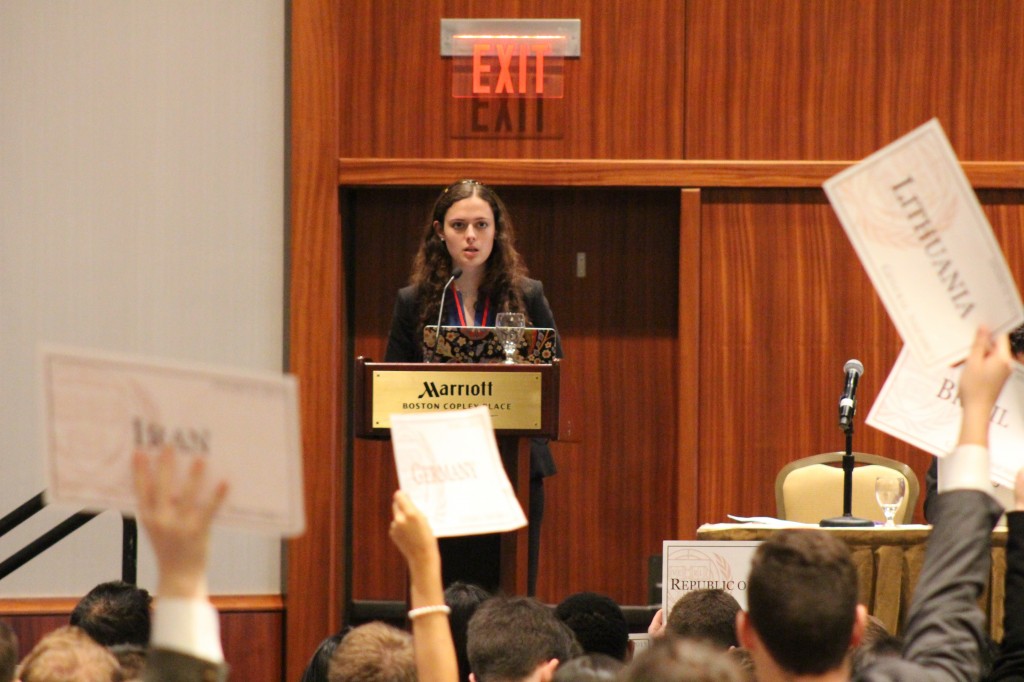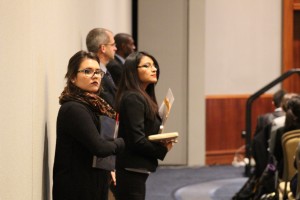DISEC Blocks Draw a Clear Line on Solutions to Ethnic Conflict

The moderator of DISEC chooses delegates to describe their current strategies for tackling ethnic conflicts.
By JESSE JAMES STEELE, AL JAZEERA
As the topic of ethnic conflict is examined closely by the nations on the Disarmament and International Security (DISEC) council, block positions have begun to reveal themselves to ask for specific clauses they would like to see within the first round of working papers. While most countries agree that the results of ethnic crises are devastating, states are disagreeing on whether there is a call for outside intervention or internal reform.
Following the motion of a moderated caucus on specific strategies for tackling the issue, the delegate from Lithuania discussed intricate steps countries could take in order to monitor and safeguard against ethnic conflict. With this “Stoplight System,” governments could estimate and identify levels of conflict, thus events of dangerous escalation would not blindside states and proper means could be prepared beforehand.
The Peoples Republic of China (PRC) spoke after the delegate of Lithuania, however rather than just offering solutions the country’s representative warned against the prevalence of intervention in a number of working papers.
“We should be careful that in this counsel we will not surpass what the security counsel should do,” he said. “Of course, ethnic cleansing is one of the worst atrocities mankind has ever seen, but we should be careful to not infringe on the basic principles of state sovereignty.”
The delegate from the Syrian Arab Republic (SAR) reinforced the PRC by calling for stability within the economics, regions and government of countries facing issues of ethnic conflict. While emphasizing the necessity of established administrations, the SAR discussed the power of international recognition of governments and how having interacting bodies, such as peacekeepers, work directly with elected officials can create a more cohesive and productive action.
“It is ironic that states in this forum say they want stability, yet they have a government that doesn’t speak for their people,” said the delegate from San Marino. “It is ironic that a lot of states here today are pushing for resolutions without clearly identifying the problems.”
A block between San Marino, the United Kingdom (U.K.), India, and a number of other countries has agreed to not use generic actions to deal with the issue of ethnic conflict. The representative of the U.K. detailed that their block simply wanted to take both a proactive and reactive approach to the topic at hand.
“Proactive strategies include things such as specific region solutions [and] information gathering,” he said. “Reactive strategies include reinforcing peacekeeping while also reinforcing the reconstruction of nations hurt by ethnic conflict.”




Recent Comments